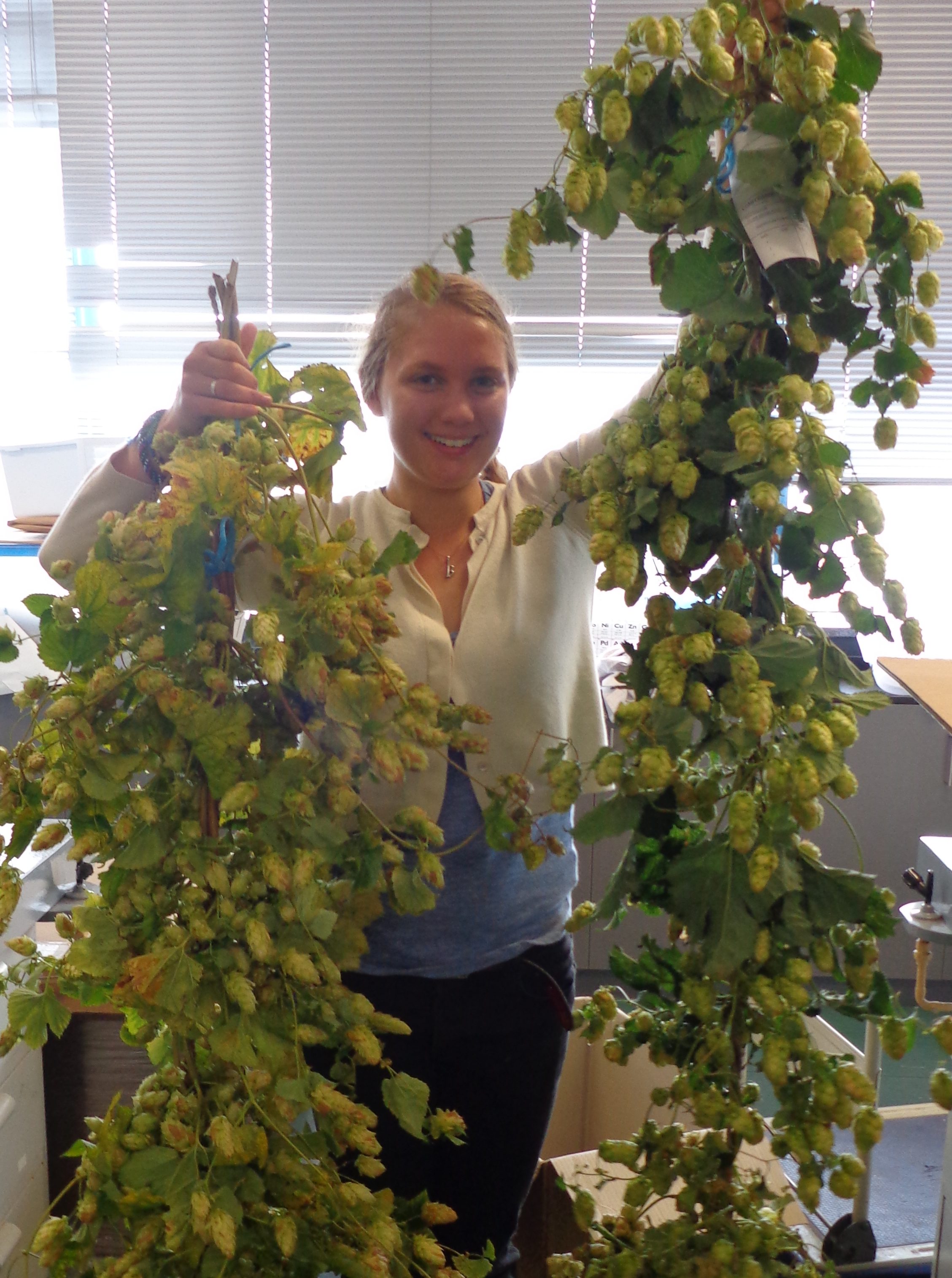
Bianca Deans
Plant Chemistry PhD student
School of Physical Sciences
University of Tasmania
You simply wouldn’t be alive if it wasn’t for plants. We need their oxygen to breathe, consume them by the billions, animals eat them, they clothe us, literally spice up our lives, and are bloomin’ beautiful.
Plants are also a lot like us. They breathe and move, have systems to transport water and nutrients, they grow and age. They also communicate with each other, have friends (and foes!) and dynamically respond to their environment (including music!).
I’ve been fascinated by plants from a very early age, growing up in a family of plant enthusiasts. I began being a scientist in my backyard really. Some of my favourite childhood memories were of cutting up stems and leaves, pulling beautiful flowers apart, slicing fruits and seeds – just to investigate their structure and possible function. Learning that plants, like us, are made of incredibly tiny units called cells, actually blew my mind. These cells make up specialised tissues, which circulate nutrients around a plant, and enable them to thrive. You can observe the intricate patterns of these cells and tissues under a microscope by very thinly slicing stems and leaves. Some even look like smiley faces!
These early experiences sparked my interest in science, and lead me to study a variety of science subjects at the University of Tasmania – including plant science, zoology, chemistry, agricultural science, ecology, maths and even studying music on the side! I graduated with a science degree, majoring in Chemistry, and I currently study the chemistry of Tasmanian plants.
Being an island state, isolated from the mainland of Australia, Tasmania has evolved a high number of endemic plant species (over 500!) that are only found to naturally exist here. My interest is to find out what these plants contain chemically – could there be new medicinal cures waiting to be discovered? I also want to see if the chemistry in Tasmanian plants differs from other species in Australia, and around the world.
The more quirky and interesting aspects I learn about plants, the more I want to know. For example, when you smell a daisy, you actually smell hundreds of individual flowers. One of the largest flowers in the world spans over a metre, and weighs over 10kg! Some plants take thousands of years to grow a few centimetres, and others are eaten within a few days of germination.
Plants are both fun and fundamental to our existence, why not learn more?!
Find out more: www.utas.edu.au/plant-science; www.utas.edu.au/chemistry